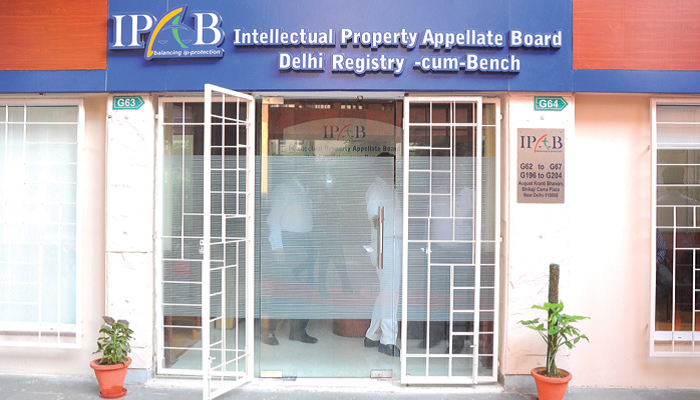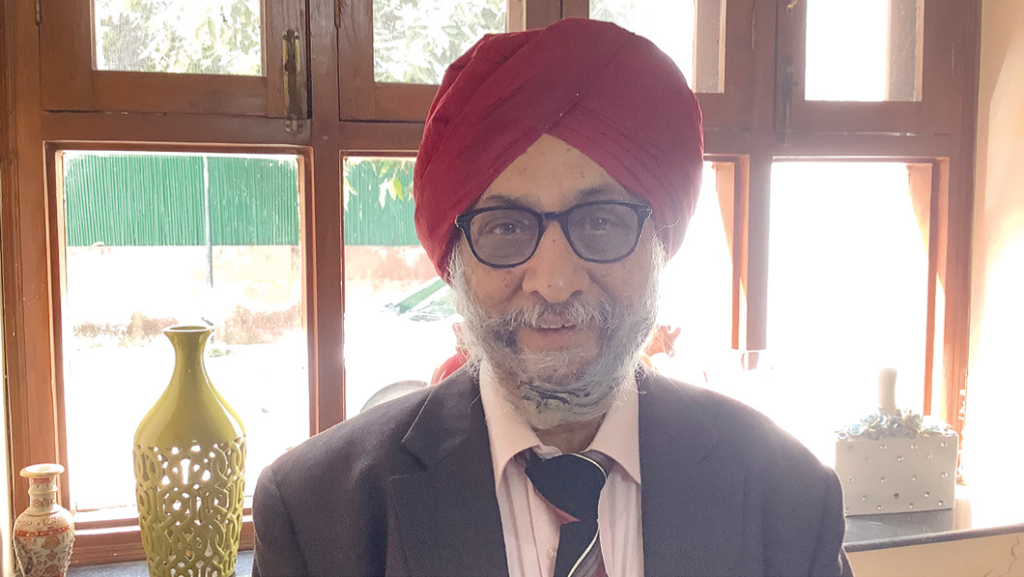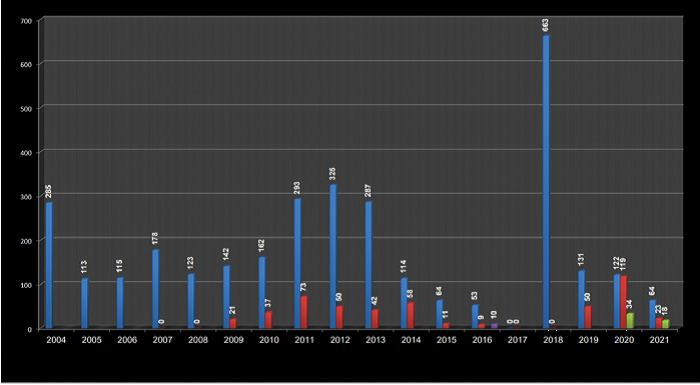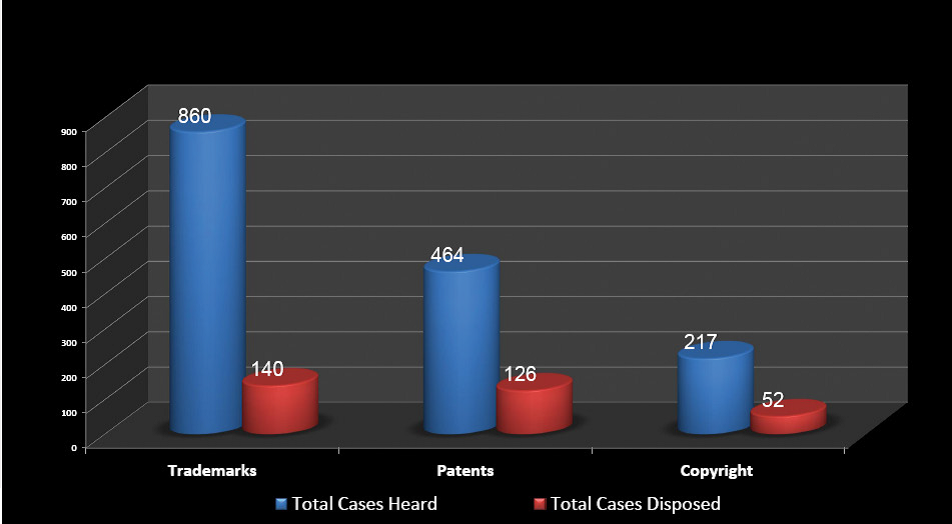
or

Ever since 2018 when The Intellectual Property Appellate Board was no more a headless tribunal, there has been an immense relief to litigants across sectors in matters that have been highly sensitive and could only be heard by a veteran in the IPR domain – none other than Justice Manmohan Singh. Lex Witness, in conversation with the Judge, attempts to answer some questions around.

The job of a High Court Judge has always been exciting and challenging, so to say. You have to administer justice promptly, and that too to the satisfaction of the public and advocates and interested parties who read through your judgments carefully.
The lawyers who were seasoned in the domains by their arguments and skills allowed me to learn every hearing I presided as a Judge. With the same, I can also deliver the judgments on several legal points on the interpretation of PMLA. The challenges in IPAB are of a different kind; I have been part of the patent cases, trademark matters, and copyright cases and have handed all these cases during the challenging times of Covid. Additionally, this was, even more, an uphill task that we took up our sleeves during my tenure as Chairman due to lack of members in the Tribunal. These circumstances were challenging and made the Tribunal’s working more challenging than regular times.
It has been apparent and precise. I had been appointed as the Chairman of IPAB for a period of 3 years w.e.f 1st January 2018. However, it was later notified that as I would be attaining superannuation in September 2019 my term as IPAB Chairman would come to an end in September 2019. Thereafter, the Hon’ble Supreme Court considering that the position would otherwise remain vacant granted a year’s extension from the date of my superannuation i.e., till September 21, 2020, which was later on also ordered by the Central Government. On September 16, 2020, the apex Court further extended the term for three months from the date of the order up until 31.12.20. I was further granted another 3 months extension by the Government of India for the tenure to be upto 31.03.21. However, I have not been presiding as the Chairman 16.02.21 onwards given the Hon’ble Supreme Court’s order.


I lost my father at the age of two. My parents belonged to a middle-class family. Due to the struggle and wishful thinking of my mother, I became an advocate on 12.8.1980. I started to practice on the IPR side in my maternal uncle’s chamber, who died in 1989. After that, I started my independent practice on the IPR side. Amongst thousands of cases that I worked on; more than 500 cases have been reported in law journals. On 11.4.2008, I was elevated as a Judge of Delhi High Court. After retirement on 21.9.2016. I joined Appellate Tribunal formed under the Prevention of Money Laundering Act on 22.9.2016 as a chairman. On 1.1.2018, I was given an additional charge as a Chairman to hear and decide cases before IPAB. My journey has been satisfactory both as a legal professional and a Judge of various rosters and subjects I have handled.
“I lost my father at the age of two. My parents belonged to a middle-class family. Due to the struggle and wishful thinking of my mother, I became an advocate on 12.8.1980. I started to practice on the IPR side in my maternal uncle’s chamber, who died in 1989. After that, I started my independent practice on the IPR side. Amongst thousands of cases that I worked on; more than 500 cases have been reported in law journals. On 11.4.2008, I was elevated as a Judge of Delhi High Court. After retirement on 21.9.2016. I joined Appellate Tribunal formed under the Prevention of Money Laundering Act on 22.9.2016 as a chairman. On 1.1.2018, I was given an additional charge as a Chairman to hear and decide cases before IPAB. My journey has been satisfactory both as a legal professional and a Judge of various rosters and subjects I have handled.”
The statistical data and the rate of disposal is available on the website of the IPAB. I can say with certainty that the pace I have tried to handle the matters and the appointed members’ able contribution only last year was relatively swift than the adjudication process’s ordinary pace. We realized already that the Tribunal’s challenge was that the Tribunal remained suspended for about 3 years before my appointment. The members’ appointment worked towards delivering justice, keeping the delay and pendency in mind.
I would rate the following as Top three achievements of the Board so far;
I believe that IPAB is an expert body. The subject area per se requires technical expertise to appreciate the facts and the intellectual property’s nature. Therefore, I feel that technical expertise and teamwork, which is kind of clubbing of judicial resources coupled with technical expertise, produces efficient results. Consequently, I am a believer that technical members are required for each type of IP rights. Only in this way can we have well-appreciated judgments both on facts and law.
I have expressed above that I am a believer in the technical nature and expertise of the Tribunal. In fact, the establishment of IPAB was one of the obligations under the TRIPS agreement wherein under Article 41(5) to put in place a judicial system for the enforcement of IP rights from that for law enforcement in general. Therefore, as per TRIPS agreement of December, 1999 Trademark bill 1999 was tabled in the Parliament, proposing IPAB to be established. It was debated in Parliament on 22nd December 1999 and after a long debate, it was passed and on 15th September, 2003 IPAB was established.
Thank you for your compliment on the Judgment. I would say that giving timely justice is part of every Judge’s judicial training, and the same is embedded in us when we sit as a High Court Judge. I am fortunate to have this training with the High Court Senior Judges who even did not keep the judgments pending for even a single day, and I was part of that bench and did the same thing even in the High Court. My experience as a High Court Judge contributed immensely to handling this case in a time-bound manner. Furthermore, I would like to make a special note of my bench partners’ able contributions who contributed significantly by their writings, drafts in various parts in Judgment, that have allowed us as a Board to come up with this Judgment in such a time-bound manner. So, yes, Judges have to function while realizing that there is a need for natural justice, keeping in mind the critical timelines. This is and should be usual for justice delivery by Judges.
My message to the specialist lawyers who intend to become judges is that justice delivery is a highly delicate job wherein you are constantly under public scrutiny. The well-respected judges hear the viewpoints of the others as lawyers rather than imposing their perspectives. Though we call ourselves experts in the respective fields, the court’s arguments are like tests in the laboratory, and the debate in the courts can change the complexion of the judges’ viewpoint. So, while you all aspire to become a judge, I would say that we should not have any preconceived minds about any legal point though we may be allowed to keep our experiences in reserve. Often, experience helps, but equally important is the debate in the courts and research over the subject. The expertise subjects like IPR require more indepth knowledge and grip over the same, and each case is a distinct case to decide to have its uniqueness to be presented. It’s all about finding out that uniqueness.
I do really hope that they should. But the courts have their challenges, especially during these times of Covid wherein the pendency is increasing rapidly. Its only time can tell whether this move reaps the results as foreseeable in the bill or the current system is better. I would refrain from venturing into any speculations as the government has already presented this Bill in Parliament.
Suppose IPAB is someway allowed to continue functioning, and this move of transferring back the matters to the courts does not materialize. In that case, I think IPAB does not need anything other than the regular appointments of the judicial members and technical members combined and the regular filling up the administrative staff’s posts to function as a Tribunal. As I stated above, the last year is an example of the practical experience wherein IPAB, with all the posts filled up, can decide cases swiftly and that too on a video conference with minimum travel and expenses solely on the Video Conferencing. So, for an impetus to become IP Capital requires more of “will” rather than any demand specifically for improvisation except the regular functioning and filling up of past as per the statutory mechanism. Even if we can retain the IPAB as a tribunal continuously functional regularly like other Tribunals like NCLT, National Green Tribunal, and Debt Recovery Tribunal, then the continuous functioning with experts heading the same per se will reduce the pendency considerably. There is nothing specific as such required except that the Tribunal remains functional with all posts filled uptime without delay.


Intellectual Property Appellate Board has been constituted by a Gazette notification of the Central Government in the Ministry of Commerce and Industry on 15th September 2003 to hear appeals against the decisions of the Registrar under the Trade Marks Act, 1999 and the Geographical Indications of Goods (Registration and Protection) Act, 1999.
The Intellectual Property Appellate Board has its headquarters at Chennai and shall have sittings at Chennai, Mumbai, Delhi, Kolkata, and Ahmedabad.
Section 83 of the Trade Marks Act, 1999(Act), provides for the establishment of an Appellate Board to be known as the Intellectual Property Appellate Board (IPAB). The provisions relating to IPAB are contained in sections 83 to 100 of the above Act. The Intellectual Property Appellate Board has been established by the Central Government with effect from 15th September, 2003 vide Government of India Gazette Notification No. S.O.1049(E) dated 15th September, 2003 with its office at Chennai.
In terms of the Notifications No.12/15/2006-IPR-III) dated 2/4/2007 issued by the Ministry of Commerce & Industry, the provisions of the Patent Amendment Act, 2002 and the Patents Amendment Act, 2005, relating to the Intellectual Property Appellate Board have been brought into force. Thus, all the Appeals pending before the various High Courts, will stand transferred to the IPAB. Likewise, fresh Rectification Applications under the Patents Act, 1970, will have to be filed before the IPAB.
In pursuance of Section 160(a) & 160 (c) of Finance Act, 2017 (7of 2017), the Intellectual property Appellate Board established under section 83 of the Trade Marks Act, 1999(47 of 1999) shall, on and from the commencement of Part XIV of Chapter VI of the Finance Act, 2017 be the Appellate Board for the purposes of this Act and the said Appellate Board shall exercise the jurisdiction, powers and authority conferred on it by or under this Copy Right Act, 1957. In view of the same, all the cases pending before the Copy Right Board were transferred to Intellectual Property Appellate Board.
The transitional Provision was invoked as per Section 59 of Protection of Plant Varieties and Farmers Act (Section 53 of 2011), and Intellectual Property Appellate Board established under Trade Mark Act shall exercise the jurisdiction, powers and authority conferred with Plant Varieties Protection Appellate Tribunal (PVPAT) to hear the appeal as per Section 56 of the Act.
The LW Bureau is a seasoned mix of legal correspondents, authors and analysts who bring together a very well researched set of articles for your mighty readership. These articles are not necessarily the views of the Bureau itself but prove to be thought provoking and lead to discussions amongst all of us. Have an interesting read through.

Lex Witness Bureau

Lex Witness Bureau

For over 10 years, since its inception in 2009 as a monthly, Lex Witness has become India’s most credible platform for the legal luminaries to opine, comment and share their views. more...
Connect Us:


The Grand Masters - A Corporate Counsel Legal Best Practices Summit Series
www.grandmasters.in | 8 Years & Counting
The Real Estate & Construction Legal Summit
www.rcls.in | 8 Years & Counting
The Information Technology Legal Summit
www.itlegalsummit.com | 8 Years & Counting
The Banking & Finance Legal Summit
www.bfls.in | 8 Years & Counting
The Media, Advertising and Entertainment Legal Summit
www.maels.in | 8 Years & Counting
The Pharma Legal & Compliance Summit
www.plcs.co.in | 8 Years & Counting
We at Lex Witness strategically assist firms in reaching out to the relevant audience sets through various knowledge sharing initiatives. Here are some more info decks for you to know us better.
Copyright © 2020 Lex Witness - India's 1st Magazine on Legal & Corporate Affairs Rights of Admission Reserved